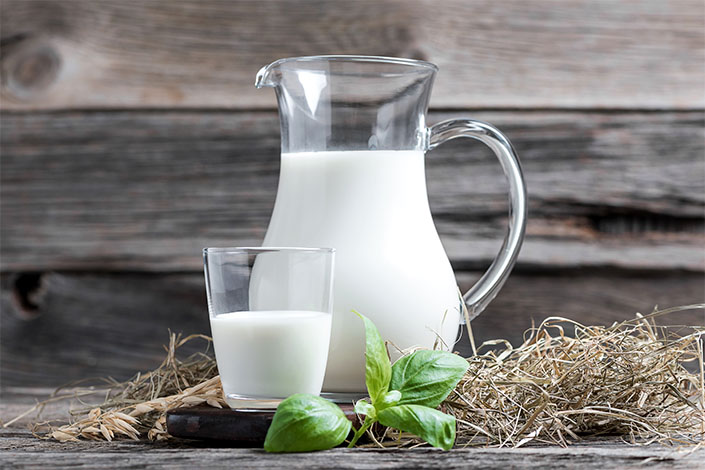
The Ultimate Guide to Lactose-free Milk: Better Than Traditional Milk?
abril 19, 2021There’s no doubt that milk is one of the most controversial and nutrient-dense drinks. Despite being a complete source of protein, fats, vitamins, and minerals, many people claim that it is bad for you. “Milk makes you fat”, “milk is only for babies”, “milk can worsen a cold”. You probably heard those myths over and over. This makes us wonder why milk raises so many myths around it? Let’s see!
Myth #1: Dairy is bad for your health
There are many myths on the internet claiming that drinking milk is bad for your health. However, these claims have no scientific basis. We should not believe all the rumors about dairy products. In the end, what matters the most is what real science has to say about it.
Dairy products are rich in nutrients, such as calcium and protein. In fact, many of these are essential for growth and bone development, and strength. Milk is one of the primary foods from a nutritional perspective, as it contains all the essential amino acids. Besides, it is a good source of proteins and contains beneficial properties for the immune, cardiovascular and digestive systems.
Myth #2: Adults should not drink milk
This idea has been spreading over the years. Many people claim that we should not drink milk after breastfeeding. According to their belief, after breastfeeding, the enzymes that help us digest milk disappear. However, this is untrue.
Although there is an increasing intolerance to lactose, people are becoming increasingly intolerant than in previous years due to a lack of milk consumption. Besides, the less you expose yourself to milk, the more likely you are to develop a dairy intolerance.
This can be seen in a clear example from a study that found that Europeans are less likely to become dairy intolerant than the rest of the world population. The reason behind this discovery lies in the fact that European cuisine and eating traditions include more dairy than other cultures. But that’s not all. The study has also found out that this could also be connected to cattle disease and drastic climate changes.
Myth #3: Dairy causes intolerances
It is important to stress that allergies and intolerances are not the same. Allergies are caused by a reaction to milk protein, while intolerances are caused by lactose, a form of sugar found in milk. If you suffer from dairy allergies, there are milk alternatives like hydrolyzed milk. Similarly, there is lactose-free dairy for intolerances.
Anyways, the fact that milk contains potentially allergenic components does not make it an unhealthy food. On the contrary, milk is a great choice. It contains calcium, magnesium, phosphorus, zinc, iodine, selenium, B vitamins, vitamins A, and D.
Myth #4: Dairy products increase the risk of getting cancer
According to Cancer Research UK, there is no decisive evidence linking dairy consumption with an increased risk of cancer. In fact, they recommend its consumption, as milk is a good source of calcium and protein, which is important to maintain a healthy and balanced diet.
Myth #5: Milk produces mucus or worsens asthma
The National Asthma Council from Australia has recently busted this myth. There is no evidence that consuming dairy products or drinking milk contributes to increased mucus or causes respiratory issues or asthma.
Another study published in The College of Family Physicians of Canada concluded that “current evidence does not directly link milk consumption and asthma.”
Myth #6: Drinking milk makes you fat
As we all know, milk provides multiple nutrients in limited caloric content. For instance, only 3.5% of whole milk is fat, and 0.8% in skimmed milk. Quite contrary to popular belief, milk can be a great addition to your weight loss diet. As it provides rich nutrients in a few calories, and it offers a good amount of protein to keep your lean muscle intact and even aid in muscle gain.
Myth #7: Plant-based milk is an excellent substitute for milk
Calling plant-based drinks «milk» is not the most appropriate choice, as it can lead to misunderstandings. Vegetable drinks do not have the properties of animal origin milk. Cow’s milk provides a much more significant amount of protein and many more bioavailable nutrients than vegetable drinks do.
Final Thoughts
All in all, now that you know the truth behind the biggest myths around milk consumption, drinking milk is your choice. If you have issues with lactose, you can always consume lactose-free products. However, if you can milk, it is an excellent source of bioavailable macro and micronutrients. Milk is one of the food chain’s basic products and a ‘must’ in our diet. But, not only that, milk and dairy products are extremely delicious!



